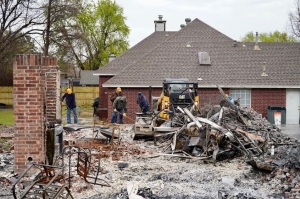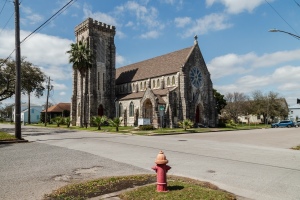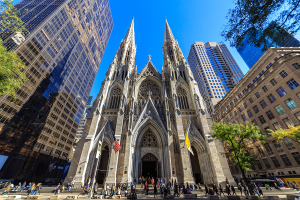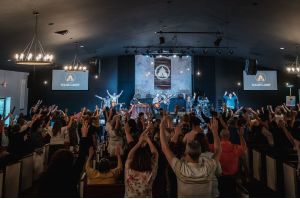Occupy Wall Street Demands: Protests Spur New Political Movement?
Are the “Occupy Wall Street” protests a sign of a new political movement emerging in America?
That’s the question political analyst and social scientists are asking Tuesday, as Occupy Wall Street entered its third week. Protests have spread from New York City to other cities across the U.S.
Gathering momentum, over 100 cities worldwide have clocked in under the “Occupy” moniker.
“Occupy Wall Street” protestors are an ever-expanding, loosely organized, and casually affiliated network of people taking over public spaces with pizza, air mattresses and loads of cardboard signs.
The predominantly under-30 crowd used social media to exchange shared criticisms and give advice to newcomers. It’s been reported that protestors are getting ready for a long road ahead.
Taking inspiration from recent social protests in the Middle East, “Occupy Wall Street is a leaderless resistance movement with people of many colors, genders and political persuasions,” according to the movement’s website, https://occupywallst.org.
“The one thing we all have in common is that we are the 99 percent that will no longer tolerate the greed and corruption of the 1 percent,” the website read.
While it may be too early to say for certain, David Johnson, an Atlanta-based Republican political strategist, suggested that the protests won’t last, The Christian Science Monitor wrote.
“They have everyone from libertarians, to liberals, moderates, socialists, and hard-line conservatives,” Johnson stated, adding that this sort of coalition works well for a short period of protest.
“This kind of fractious group won’t hold together for the long run," he added. "They can do a short protest, but they’re much too disparate to be the beginnings of a long-term movement.”
However, Heather Gautney, a professor of sociology at Fordham University in NY, has a different view.
“In the spirit of the globalization movement, this is a ‘leaderless movement,’” she told the Christian Science Monitor. “Occupy Wall Street is now a “movement of movements.”
According to Gautney, the groups involved do not seek to replicate the non-democratic, hierarchical structures of the organizations they oppose.
"The movement shows signs of readying for the long haul," said Gautney, referring to the attention of liberal organizations and support of organized labor unions.





























